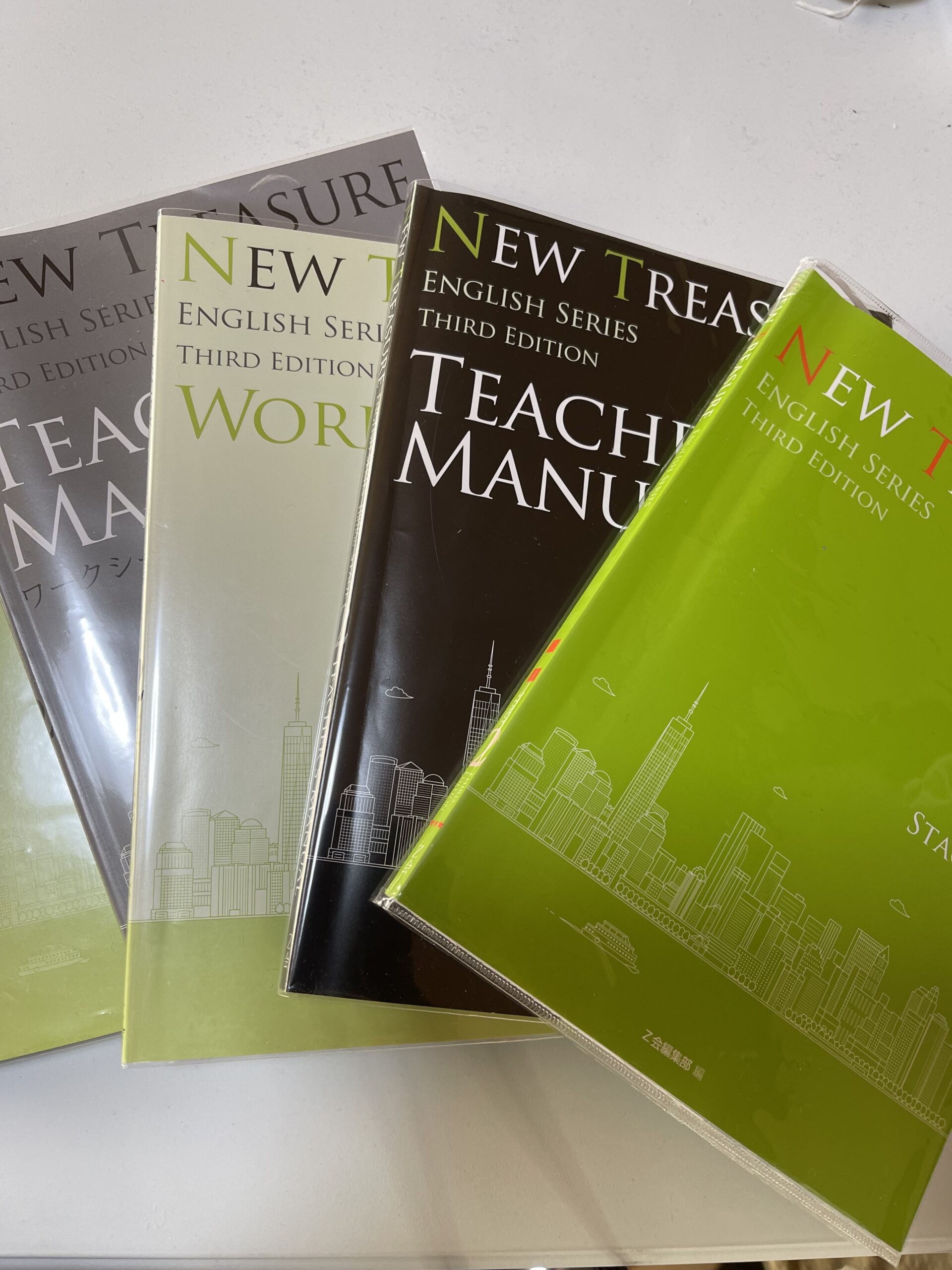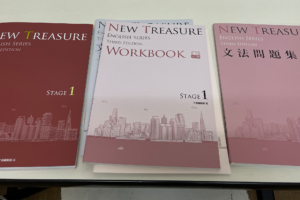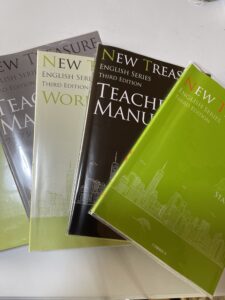奈良学園前と西宮夙川にある英語専門塾です。多くの生徒がニュートレジャーやプログレスなどの教科書を使っています。教室ではオリジナルのプリントを作って対応しております。その中から少しずつアップしていきます。
いよいよニュートレジャーのステージ2も第3版がでましたね。
ニュートレジャー ステージ2 レッスン3 リードの和訳です。
自習勉強にお役立てください。
46
❶ やあ、みんな。今日の番組で、私はある筆者の人生について話しましょう。 人々は彼はイギリスのもっとも人気のなる著者の一人であると言う。彼の名前は言わないでおこう。当ててごらん。わかったかい。では行こう!
Hi, everyone! In today’s program, I will tell you about the life of an author. People say that he is ( ) ( ) the ( ) ( ) authors from the UK. I ( ) tell you his name. You will have to ( ). Okay? ( ) we go!
❷ 筆者はイギリス出身だと言ったよね。でも両親はノルウェイ出身なんだ。彼の両親は彼をノルウェイの英雄にちなんで名付けた。この英雄は初めて南極に到達した人だ。筆者にはたくさんの姉妹がいたが、彼が3歳の時に1人亡くなった。彼の父もそのあとすぐに亡くなった。
I said that this author was from the UK, but his parents were from Norway. His parents ( ) him ( ) a great hero in Norway. This hero was the first person to reach the South Pole. The author had many sisters, but one of them died when he was three years old. His father also died ( ) ( ) that.
p.47
❶ それからは、母は彼女だけで、子供を育てた。彼女はベッドタイムに毎晩子供たちに本を読んだ。本は、冒険やノルウェーのおとぎ話などであった。筆者は物語や本に興味を持つようになった。彼女の母は彼に大きな影響力があった。
( ) ( ) ( ), his mother raised the children ( ) ( ). She read books ( ) her children every night ( ) bedtime. The books were about adventures, Norwegian fairy tales, ( ) ( ) ( ). The author ( ) interested in stories and books. His mother had big ( ) ( ) him.
❷ 筆者の父もまた彼に大きな影響力があった。彼が子供の時、父の古い日記を見つけた。父は、第一次世界大戦の間日記をつけていた。それはとても面白い日記だった。だから、息子は彼が8歳になった時、日記をつけ始めた。それは秘密だった。それを秘密にしておくために、箱に入れ、木の上の枝の箱に結んだ。
The author’s father also had a ( ) ( ) ( ) him. When
he was a child, he found his father’s diary. His father ( ) a diary ( ) World War Ⅰ. It was a very interesting diary. So the son began to ( ) a ( ) when he was eight years old. It was a secret diary. ( ) ( ) it a ( ), he put it in a box and tied the box to a branch at the top of a tree.
❸ 9歳の時、学校に入学するために、初めて、家族から離れて暮らさなければならなかった。彼の学校生活は楽しくなかった。 彼は先生とうまくやっていけなかった。そしてホームシックになった。彼は母に毎週手紙を書いた。彼は大人になった後でさえも書き続けた。
( ) the ( ) ( ) nine, he had to live ( ) ( ) his family ( ) the ( ) ( ) to enter school. His school life was not happy. He did not ( ) ( ) ( ) ( ) his teachers ,and he became homesick. He wrote to his mother every week. He ( ) ( ) do so ( ) ( ) he became an adult.
- 48 ❸ Today’s Program ( 2 )
❶ 高校の後、筆者は多くの仕事を持った。ついに、彼は第二次世界大戦がはじまった時に、空軍にパイロットになった。彼はイラクやギリシャなどの多くの国に飛行した。しかし、ある日、彼がリビアに帰る途中、彼の飛行機が墜落した。彼は事故でもう少しで死ぬところだったが、幸運にも生き残った。
After high school, the author had many jobs. Finally, he became a pilot in the Royal Air Force when World War Ⅱ began. He flew to many countries, ( ) ( ) Iraq and Greece. But on day, when he ( ) ( ) ( ) ( ) ( ) Libya, his plane ( ).He ( ) died ( ) the accident, but luckily, he survived.
❷ 後年、彼は戦争の経験について書いた。それは彼の作家としての最初の作品となった。彼は大人たちだけではく子供たちの為にも書いた。彼の多くの子供の本は世界中でとても人気となった。そのうちの1つは2回映画にもなった。それはチョコレート工場の話だった。私は、日本の有名なアニメーションの監督、宮崎駿も彼の作品と大ファンだと聞いている。誰の話だろう?次の番組で彼の名前を教えましょう。
( ) ( ) ( ) ( ), he wrote about his experience in the war. That became his first work ( ) an author. He wrote ( ) ( ) for adults ( ) ( ) for children. Many of his children’s books became very popular around the world. One of them became a movie twice. It was about a chocolate factory. I hear that Miyazaki Hayao, a famous Japanese animation director, is a ( ) ( ) ( ) his works! Whose story is this? I will tell you his name in the next program.





